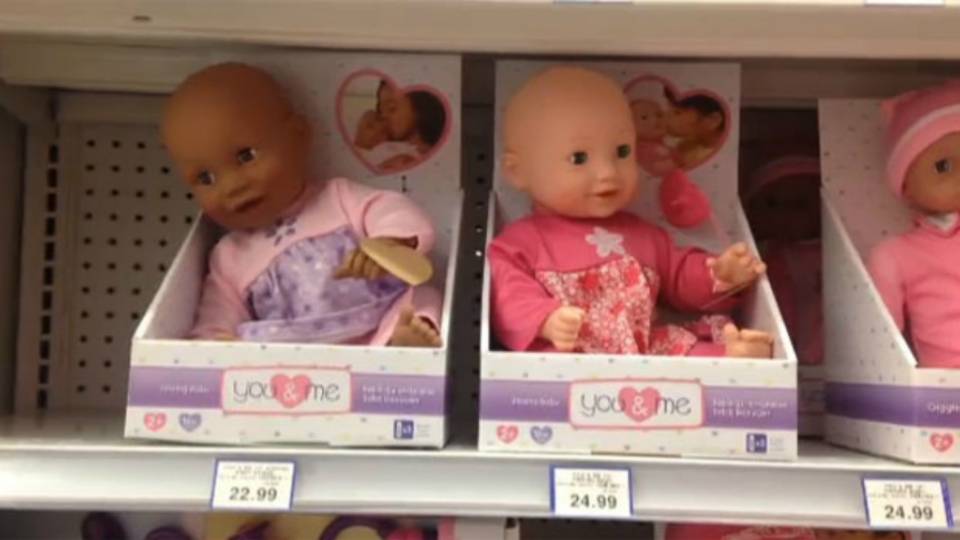Calgary woman questions if different prices for dolls with different skin colour is racist
A Calgary woman says dolls she found at Toys "R" Us were identical except for skin colour and price, and wonders if it was a racist pricing choice.
She asked why the so-labeled “ethnic” version of the “You & Me Kissing Doll” was $2 cheaper than the identical white doll.
“The woman at the store said she was aware of the issue and that management had raised it with corporate but so far corporate had done nothing about it and she seemed embarrassed about it but it wasn't in her control to change the price,” said Carolyn Wadsworth, prenatal educator.
Wadsworth sometimes buys dolls to help teach prenatal education, but was disturbed by these ones.
“The black baby is not as valuable as the white one,” she said. “I feel that's the message it's sending and it's certainly one kids might receive.”
CTV asked the management of the company both locally and at the Ontario headquarters about the dolls but received no explanation. Marketing experts say whether conscious or not, decisions like this are costly for companies.
“We live in an age of political correctness and people are sensitive to these issues,” said Mohammed el Hazzouri, Marketing Professor at Mount Royal University.
Recent examples of perceived corporate bias include an ad by The Gap showing a black girl who seemed to be subservient to a group of white girls, and a Target ad that labelled the colour of two identical dresses as “heather” in regular sizes and “manatee” in plus sizes. In both of those cases, the companies apologized.
[Editor's Note: Dolls and racism seem to go hand in hand. I wonder why?]





















